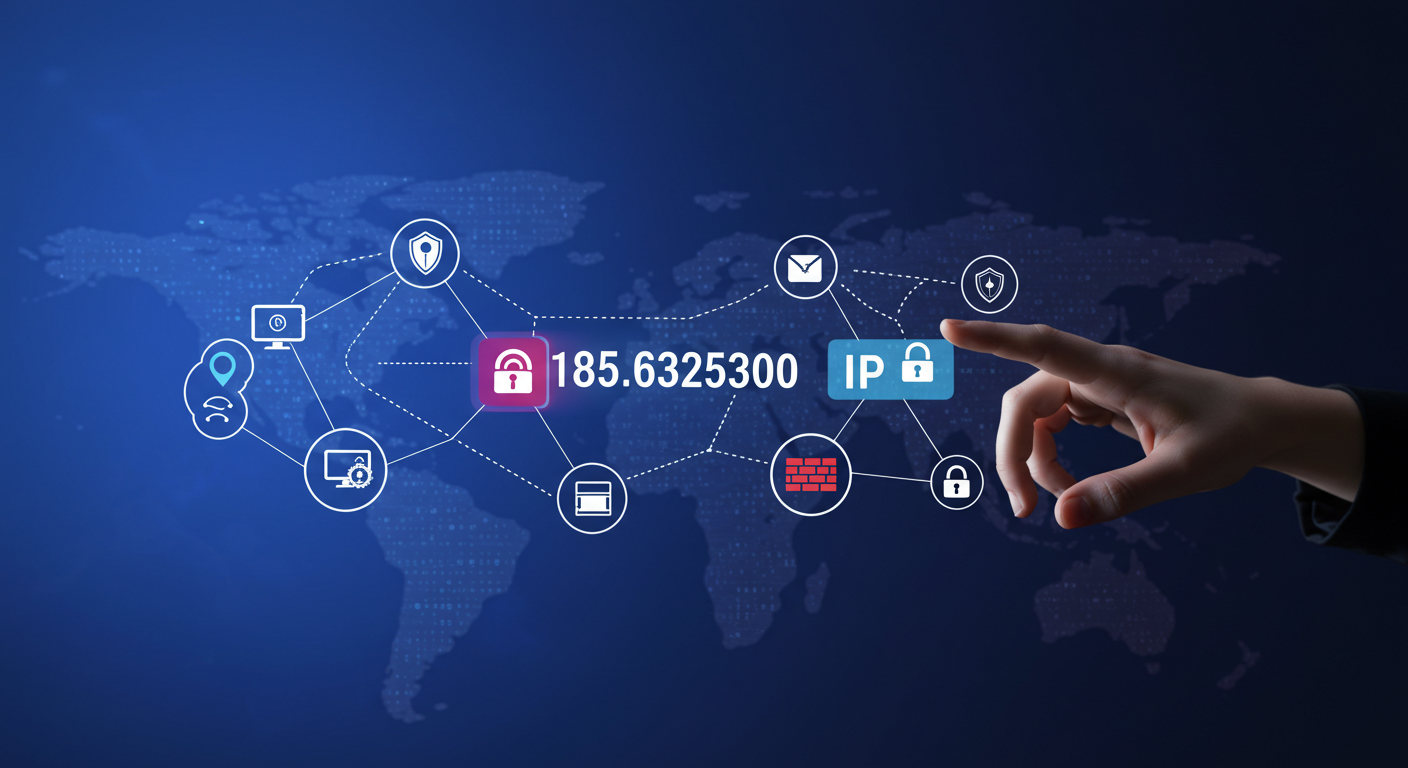In today’s digitally connected world, understanding network security is more crucial than ever. One of the key components in this complex web of connectivity is an IP address. But not just any IP address—specifically, 185.63.2253.200 stands out for its unique implications and significance in the realm of cybersecurity.
As we dive deeper into what this specific IP represents, we’ll explore how it ties into broader concepts of network safety and protection against online threats. Whether you’re a tech enthusiast or simply looking to safeguard your home network, grasping the intricacies behind such addresses can make all the difference in protecting your digital space from potential attacks.
Join us on this journey as we unravel the mysteries surrounding 185.63.2253.200 and enhance our understanding of network security together!
What is 185.63.2253.200?
185.63.2253.200 is an intriguing set of numbers that appears to be an IP address. However, it’s worth noting that this particular address falls outside the standard format.
Typically, IP addresses are expressed in a series of four octets separated by periods, with each octet ranging from 0 to 255. In this case, the third segment exceeds 255, rendering it invalid as a typical IPv4 address.
This discrepancy highlights the importance of understanding how IP addresses function and their role in network communication. Each valid IP serves as a unique identifier for devices connected to the internet or local networks.
Understanding such details about IP addresses can aid in grasping broader concepts related to networking and security strategies. It opens up avenues for exploring how legitimate addresses support connectivity while also serving as potential gateways for threats if not managed properly.
The Importance of Network Security
Network security is vital in today’s digital landscape. As cyber threats grow more sophisticated, protecting sensitive information has become a top priority for organizations of all sizes.
A robust network security framework safeguards against unauthorized access and data breaches. This protection extends to both personal and corporate networks, making it essential for maintaining trust with clients and users alike.
Moreover, strong network security measures can prevent financial losses caused by cyberattacks. These incidents often lead to hefty fines, legal fees, and damage to reputation that can take years to recover from.
In an era where remote work is prevalent, ensuring secure connections becomes even more critical. Employees accessing company resources from different locations increase vulnerabilities that must be addressed proactively.
Investing in effective network security not only fortifies your systems but also enhances overall operational resilience against evolving cyber threats.
Types of IP Addresses
IP addresses come in several types, each serving distinct purposes within a network.
Public IP addresses are the most recognizable. They are assigned by Internet Service Providers (ISPs) and can be accessed from anywhere on the internet.
Private IP addresses play a different role. These are used within local networks, allowing devices to communicate without being visible externally.
Dynamic IP addresses change frequently and are allocated temporarily when a device connects to a network. This flexibility helps conserve address space.
Static IP addresses, conversely, remain constant for long periods. Businesses often use these for servers or services that require consistent access.
There’s IPv4 and IPv6 addressing protocols. While IPv4 is widely known with its 32-bit format, IPv6 offers an expanded 128-bit option to accommodate growing internet connectivity needs.
Understanding these variations is crucial for navigating the digital landscape effectively.
Understanding 185.63.2253.200 – An In-Depth Analysis
The IP address 185.63.2253.200 presents an interesting case in the world of network security. While it appears to be a typical IPv4 address, there’s more beneath its surface.
First, dissecting this address reveals that it is part of the larger class structure governing IPs. Understanding its classification can help determine how it’s used across networks globally.
Moreover, this specific range may belong to certain organizations or service providers, which could influence data traffic and security protocols associated with it.
An analysis also considers potential vulnerabilities tied to addresses like 185.63.2253.200 since they often become targets for cyber threats or misuse by malicious actors.
By examining logs and access patterns related to this IP, one can gain insights into unauthorized attempts at access or breaches within a network environment. This understanding is crucial for enhancing overall protection strategies against cyber incidents.
Common Threats to Network Security and How IP Addresses Can Help
Network security faces numerous threats, and understanding these risks is crucial for protection. One of the most common threats is malware. This malicious software can infiltrate systems, stealing sensitive data or causing disruptions.
Another prevalent issue involves phishing attacks. Cybercriminals impersonate trusted entities to lure individuals into revealing personal information. IP addresses play a vital role in identifying the source of these attacks, helping organizations take appropriate measures.
Denial-of-Service (DoS) attacks are also significant concerns. These aim to overwhelm a network, rendering it inaccessible to legitimate users. By monitoring incoming traffic through IP addresses, networks can detect unusual patterns indicative of such an attack.
Intrusion attempts are frequent as well. Hackers often exploit vulnerabilities within systems to gain unauthorized access. Tracking suspicious IP addresses allows IT teams to swiftly respond and strengthen defenses against breaches.
Best Practices for Securing Your Network Using IP Addresses
Securing your network starts with proper management of IP addresses. First, assign static IPs to critical devices. This ensures consistency and makes it easier to monitor traffic.
Next, implement a subnetting strategy. Dividing your network into smaller segments limits exposure and enhances control over access.
Use firewalls effectively. Configure rules based on IP addresses to permit or deny traffic according to specific needs. Regularly update these rules as your network evolves.
Don’t forget about monitoring tools. Utilize software that tracks unusual activities linked to certain IPs, flagging potential threats in real-time.
Educate users on the importance of strong passwords associated with their devices. Combine this with regular audits for outdated or unused accounts linked to specific IP addresses.
Keep firmware updated across all networking equipment. Vulnerabilities can often be exploited through unpatched systems connected via identified IPs.
Conclusion
Understanding network security is essential for anyone who relies on the internet. The exploration of IP addresses, particularly 185.63.2253.200, sheds light on how these numerical identifiers play a pivotal role in maintaining secure networks.
IP addresses are foundational to web communication and serve as unique identifiers for devices connected to the internet. Through this understanding, recognizing the significance of 185.63.2253.200 becomes crucial for navigating potential vulnerabilities associated with it.
Network security remains a priority in our increasingly digital world, where threats lurk around every corner. By grasping types of IP addresses and their functions, individuals can better protect themselves from attacks that exploit these digital pathways.
A deep dive into 185.63.2253.200 reveals not only its specific characteristics but also its relevance to broader cybersecurity practices that can be implemented at various levels—from personal networks to large enterprises.
Moreover, common threats such as malware infections and phishing attempts highlight why being proactive about network security matters more than ever before; knowing your IP address serves as an initial step toward safeguarding sensitive information.
Implementing best practices centered around securing your network through vigilant monitoring of IP addresses like 185.63.2253.200 can significantly enhance protection against unauthorized access or breaches.
Engaging with this knowledge empowers users to create safer online experiences while ensuring that they remain informed about the evolving landscape of cyber threats and defenses available today.




